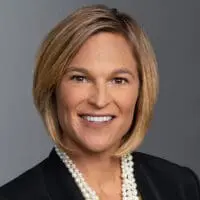Publication
Nonprofit Groups Making Certain Political Expenditures May Now Have to Disclose Donors
On September 18, 2018, The United States Supreme Court lifted a temporary stay of the order of the U.S. District Court for the District of Columbia in a complaint filed by Citizens for Responsibility and Ethics in Washington (CREW) against Crossroad GPS and the Federal Election Commission (FEC) (CREW v. FEC (Case No. 16-0259)). In doing so, the Court pulled back the proverbial curtain on so-called dark money, “social welfare” groups that until now have shielded the identity of their donors while expending millions on campaign activities in support of or against candidates at all levels of elected office. This decision stands to change the way political nonprofits raise and disclose millions of dollars being spent on the midterm elections.
Background
CREW originally filed the complaint with the FEC in 2012, alleging that Crossroads GPS and individuals connected to the organization violated the Federal Election Campaign Act (the Act) and FEC regulations by failing to disclose the contributors who funded the group's independent expenditures.
Political committees and other persons whose independent expenditures aggregate in excess of $250 in a calendar year with respect to a given election must report those expenditures to the FEC, in some cases within 24 or 48 hours. An independent expenditure is an expenditure by a person for a communication that expressly advocates the election or defeat of a clearly identified candidate and that is not coordinated with a federal candidate or political party. Under FEC regulations, those reports are required to, among other things, identify each person who made a contribution in excess of $200 for the purpose of furthering the independent expenditures disclosed (11 CFR 109.10(b)–(e)). In its complaint, CREW argued that the FEC regulation was inconsistent with the statutory requirement in 52 U.S.C. § 30104(c)(2), which requires the disclosure of those who gave "for the purpose of furthering an independent expenditure," because the statute requires far broader disclosure than the regulation.
The District Court agreed with CREW, and held that the Commission’s independent expenditure disclosure rule impermissibly narrowed the requirements under the Act and is therefore invalid and vacated the regulation. The Court found that the relevant section of the Act requires much broader disclosure than just reporting contributions made to further a particular, specified independent expenditure and instead applies to “all contributions received” by the reporting nonpolitical committees, including the disclosure of all donors of over $200 annually making contributions intended to influence elections.
Impact on midterm elections and beyond
This decision means that effective immediately, nonprofit and political organizations making independent expenditures to influence the fall elections will no longer be able to shield the identity of all their donors. Organizations may want to take the opportunity to update policies and procedures and draft notifications to donors that may alleviate unnecessary disclosure. Donors, entities and advisors to these organizations may want to consider seeking legal counsel to navigate the disclosure requirements going forward.
About Snell & Wilmer
Founded in 1938, Snell & Wilmer is a full-service business law firm with more than 500 attorneys practicing in 17 locations throughout the United States and in Mexico, including Phoenix and Tucson, Arizona; Los Angeles, Orange County, Palo Alto and San Diego, California; Denver, Colorado; Washington, D.C.; Boise, Idaho; Las Vegas and Reno-Tahoe, Nevada; Albuquerque, New Mexico; Portland, Oregon; Dallas, Texas; Salt Lake City, Utah; Seattle, Washington; and Los Cabos, Mexico. The firm represents clients ranging from large, publicly traded corporations to small businesses, individuals and entrepreneurs. For more information, visit swlaw.com.

